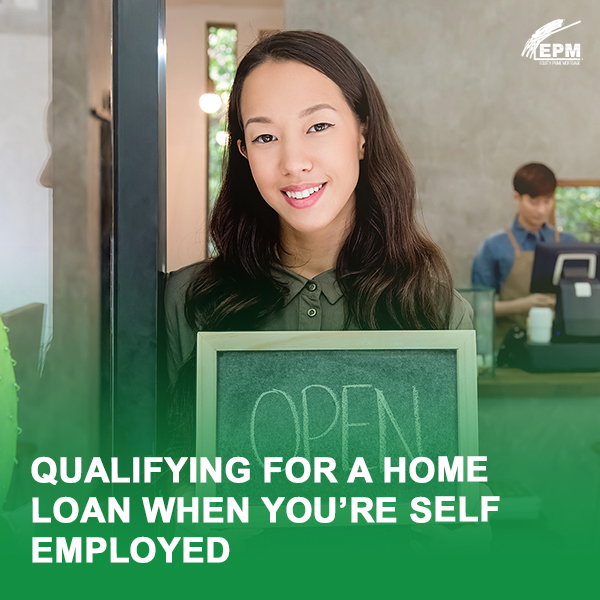Qualifying for a Home Loan When You're Self Employed

Posted by Eric Skates on
Self-employment has its perks from a financial standpoint. People who are self-employed often report enjoying having a better work-life balance, higher earning potential, and they have more control over how to structure those earnings to reach financial freedom.
When it comes to qualifying for a mortgage when you’re self employed, it can get a little tricky. Tricky, but totally possible if you can get organized and prepared with the right documentation and smart financial planning.
The EPM team is here to help get you into the house of your dreams. If you’re self employed, check out these recommendations to get yourself on track to jump through the home buying hoops with ease, and get you qualified for a home loan.
Prep your Credit and Finances in Advance
We have posts on what your credit score is and how to keep it healthy during the home buying process. To make sure you have the best bet of qualifying for a home loan as a self employed person, you have to play the long game. That means you want to get your credit score as healthy as possible and keep it that way so when your lender is pulling your report, they see healthy financial decisions, and low risk. People who are self-employed generally look like a bigger risk so you are going to have to spend some time avoiding big purchases, applying for more credit, or having any hits to your credit.
Your Debt to Income (DTI) ratio is also a big factor. Look at your monthly income. Now consider all of your monthly debt; credit cards, school loans, car payments, utilities etc… You want that percentage of debt to be a small percentage of your total income. If you’re self employed and looking at roughly 40% or more of your total income, you’re going to face many more hoops before you qualify.
Stay Organized and Keep Great Records
You are going to need 2 years of tax records; both personal and business, your EIN number and/or business license, records showing a upward trajectory on your income over time ( 2 years at minimum.)
Beyond a down payment- which is highly recommended if you are self employed- Your lender is going to want to see evidence of savings or cash reserves and know that you're not at risk of defaulting on your loan if your business has some bad months. There is no specific number here, but the more you have saved, the higher your qualifications are.
Remember, this is the long game, so it’s okay if you need time to get this in order. The more you come to your lender with, showing you are financially responsible and capable of taking on the commitment of a mortgage, the more likely you are to qualify.
Talk to a Mortgage Lender
Bigger national banks are less likely to take on the risk of lending to somebody who is self employed. Smaller and local banks are more likely to work with you and may even have some consumer benefits that others don’t. The qualified team at EPM is here to help you navigate that road when you’re ready. We can work with you to improve your loan education and understand what options are out there for you. Contact us today to get on the road to your own qualified home loan!



